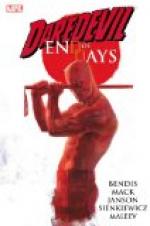“I will speak as you do, my father, from this moment forth,” I answered him with something that was wild and fierce and free rising in my child’s heart. “I will not be a grande dame of France. I am a woman of America. I speak only United States.” And I clung to my father’s arm as he drew me to him and embraced both my laughing mother and me, before I was delivered to old Nannette who, with affectionate French grumblings, led me away to the nursery for repairs.
The scene had become fixed in my memory, for from it had sprung a friendship of a great closeness with my wonderful American father whom love had chained in France. When he rode the great hunter that had come across to him from a friend in Kentucky I demanded to cling behind him or to sit the saddle in front of him, even at times running at his side as long as my breath held out, to rise on his stirrup, like the great terrifying Scotchmen do in battles, and cling as Kentuck made flight over wall or fence. My very slim and strong hands could not be kept from the steering wheel of his long blue racing car, and I could bring down a hare out of the field with any gun he possessed as unerringly as could he. I lived his life with him hour by hour, learned to think as he thought, to speak his easy transatlantic speech, and did equal trencher duty with him at all times, so that muscle and brawn were packed on my tall, broad woman’s body with the same compactness as it was packed upon his, by the time I had reached my twenty-first birthday. By that time he and I had been alone together for eight long years, for my mother had left us with tiny, misshapen Pierre as a heart burden but with only each other to be companions.
The efforts of some of my mother’s distant relatives and friends to make me into the traditional young French Marquise had resulted in giving to me a very beautiful grande dame manner to use when I stood in need of it, which I took a care was not too often. Because I had been born to a woman’s estate I considered I must manage well beautiful skirts and lacy fans, but no oftener than was necessary, I decided. I went for the most of my days habited in English knickerbockers under short corduroy skirts, worn with a many-pocketed hunting blouse. On the night of my presentation at the salon of my distant relative, the old Countess de Rochampierre, I had to apologize to a young Russian attache for searching with desperation for the bit of lace called a handkerchief, among the laces and ruffles of my evening gown in the regions where I had been accustomed to find sensible pockets.
“And is it possible that Mademoiselle Americaine hunts as well as she makes the dance?” was his delighted answer to my explanation, which led into a half-hour description of a raw morning in the field just three days before in England, where my father and I had gone over for a week’s hunting with Lord Gordon Leigh at Leigholm.
“And then some,” I returned answer with delight at his sympathy in my narration of the sport. I liked very well the American slang that my father’s friends were always glad to teach to me, and that gave to him both amusement and delight when I used it in his presence.




